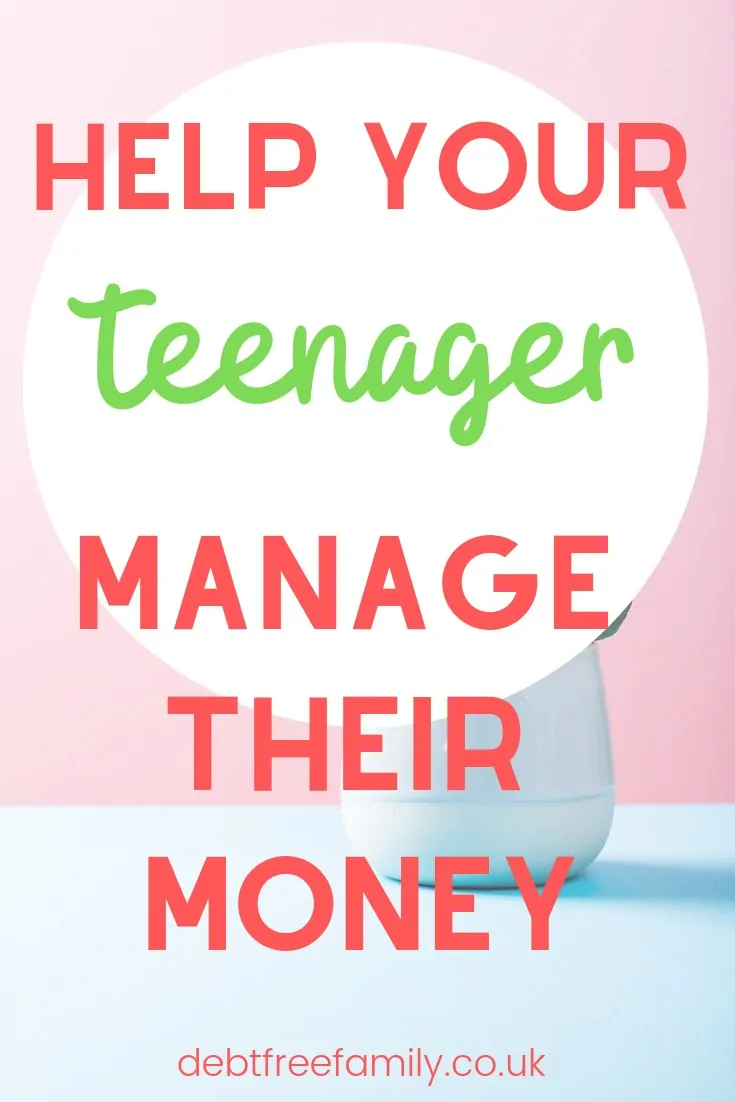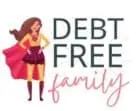* We sometimes use affiliate links, so we may receive a commission, at no cost to you, if you make a purchase through a link. Check our disclosure for more info.

I'm Steph, mum of three! 👋
Here, I share practical insights on making (and saving!) money. With a knack for budgeting and a passion for financial freedom, I've picked up lots of tips & tricks along the way. And I can't wait to share them with you here!
Teaching your teens how to effectively manage their money might be one of the best gifts you could ever give them.

Help Your Teens Manage Their Money
As if being a teenager isn’t hard enough, it’s the time many will get their first job, have their first pay day and likely their first experiences of dealing with a bank.
We’ve got 5 lessons to make sure you teenager knows to set them off on the right financial path.
More Posts You’ll Love
- How to make some cash as a kid!
- Making money through gaming. It’s real :)
- There’s serious cash in selling digital products
- The best things to sell on Etsy
- How teens can save money, quick!
Show Your Teens How To Budget Their Money
Teach your teens that looking after your money and creating a budget is simply being smart with what you have, not matter how much or how little that may be.
Budgeting is a way to ensure that what you do have, lasts as long as it needs to.
Like so many of us, teenagers feel the need to ‘keep up’ with their friends spending, just as so many of us do. Budgeting isn’t about telling teenagers they simply cannot have the things they want.
One of the most important parts of teaching teens about money is making sure they understand the WHY’s of the things you’re teaching them. Why they shouldn’t take on debt: Why they need to budget and Why they need to save.
If they can get these clear in their heads, the points you’re trying to make will mean a lot more to them.
When it comes to building a budget with your teenager, explain to them what a budget actually does, and how it makes their lives easier.
A budget allows you to clearly see what’s coming in and going out, letting you know what’s available after essentials have been paid.
Budgeting makes sure you don’t have to borrow money.
Making a budget lets you set goals and save for something that’s important to you.
Have your teen set out on paper (or there’s a free budget spreadsheet for teens here) two columns, one for incoming money, and one for outgoing money.
They’re unlikely to have too many columns to fill in yet, so this is a great time to start them off in budgeting, as it’s quite straight forward.
Have them include any money from part time jobs, allowances, babysitting money etc….and then have them list all their outgoings.
There should be a noticeable difference between the two, with a good surplus in the ‘incoming’ column!
It’s a really good idea to get your teenagers to put aside an amount of money into a savings account, so each month, before anything else is budgeted for, they know how much is going to go into savings.
Even if it’s a relatively small amount, it start’s good money habits that can last a lifetime.

Show Your Teenagers How To Save Their Money
Saving is one of those things that many of us are not taught how to do properly.
Every teenager looks forward to their first payday, and you can encourage them to pay themselves first by putting a percentage of that money straight into a savings account. 10% is a great base line to aim for.
10% won’t stop them spending a little on themselves while allowing them to pay any bills they have (phone bill perhaps?).
You could also take this chance to talk to your teen about ‘giving’. Do they have a favourite charity or organisation?
Don’t push it, but do talk to them about the benefits of helping others in their community.

How To Get Them On Board
How to best get your teenager to start saving? Show them how much money they’ll have if they start early! Compound interest is such a powerful thing: your teenager is in the best position possible to make the most of it. Darren HardyTeenagers tend to be astounded by the idea of compounding and take to it like ducks to water once they understand it.
Make sure they understand it and help them set up a Stocks and Shares ISA to put their money into.
Once they understand that even saving a tiny amount regularly will make a huge difference, they’re generally a lot keener to start saving!
Teach Your Teenager How To Read Their Payslip
It’s a rare teenager that gets their first payslip and know’s exactly what it means.
Although many teens are simply interested in the final net amount of money that’s going to hit their bank account, they should know it’s important to check things like their tax code.
You never know, they might be paying too much! Show your teen this list. Maybe show them one of your payslips and help them see where the information is.
All employees are entitled to an individual, detailed written payslip and should be given to them either before or when they are paid.
There is also certain information that a payslip must contain. It might be emailed to you or handed to you, it the same thing no matter how you’re given it.
These are the thing’s that your payslip must legally have in it:
- Gross Pay. This is your pay before any tax or National Insurance has been taken off.
- Net Pay. The total amount of pay after deductions, it’s the amount that lands in your bank!
- Deductions. The main two deductions that change form payslip to payslip are National Insurance and Tax. The amount of money deducted from your pay must show on each payslip.
- Fixed Deductions. There are other deductions that your employer might take off your pay. These might be for car parking etc….These do not have to itemized each payslip, although most employers do.
- Hourly Rate. From April 2019, if you get a different hourly rate depending on when you worked, Bank Holidays for example, this needs to be itemized in your payslip.
There will also be other information on your payslip such as your National Insurance Number and Tax code.
Teach Your Teenager How Credit Cards REALLY Work!
There are a few things you really should teach your teen about credit cards. We’re not fans here at Debt Free Family, but they’re a part of a lot of people’s lives and so arm your teen with the facts.
Cary SiegelCary Siegel’s view on credit is a common one, and one I hold.
However…. I think it should probably be accepted that some kids are going to get credit cards. So in the interest of not letting them go in blind, here’s a few thing’s it’s a good idea to teach your teens!
What’s APR anyway
It’s vital that you teach your child about APR. It’s the single most misunderstood thing about a credit card, and the banks are rich from that lack of understanding.
Annual Percentage Rate (APR). It dictates the minimum payment, the overall interest and the amount of time it’s going to take you to pay the credit card back. There are loads of 0% credit card introductory periods available (usually unavailable to teens) yet they only last a certain amount of time and if you’re late paying your monthly payment, that 0% rate is cancelled.
Show your teen some credit cards that advertise different APR’s to show them how much they’ll be paying back in interest.
A £500 credit card balance repaid at the minimum each month, with an average APR of 19.8% will take nearly 6 years to pay back. Make sure your teen knows exactly what they’re getting into. Money Saving Expert Martin Lewis has a great calculator here to check how long your credit card will take you to pay back.
Pay In Full EVERY Month
Paying your credit card in full each month does a couple of things.
Firstly, it avoids paying any of the interest we talked about above. Secondly, while your teen might not be worried about their credit score yet, building good credit will stand them in good stead later on.
Paying your credit card in full shows the bank you’re not reliant on the money to get through to the end of the month.
Don’t Miss Your Payment Date
In much the same way as above, making your payment on time each month tells the bank you’re trust worthy and able to handle credit.
Missing your payment date even only by a day or two damages your credit and makes applying for cheaper, better credit , much harder ion the future.
A direct debit to make the full payment each month is the way to go here, set it up, then you won’t have to worry about missing the payment date each month.
Everyday Purchases
A brand new credit card can seem like ‘free’ money to a lot of teenagers. Make sure they understand that a credit card is not for everyday purchases.
Get them a budget set up so they can allow for smaller everyday purchases and not have to resort to using a credit card simply to go out with their friends.
Reading For Teens Interested In Cash!
There are a couple of books I’d recommend for teens if they’re showing an interest in money. Lessons learned young last a lifetime.
They’ll thank you (one day) for helping them do it right!
Susan Beacham